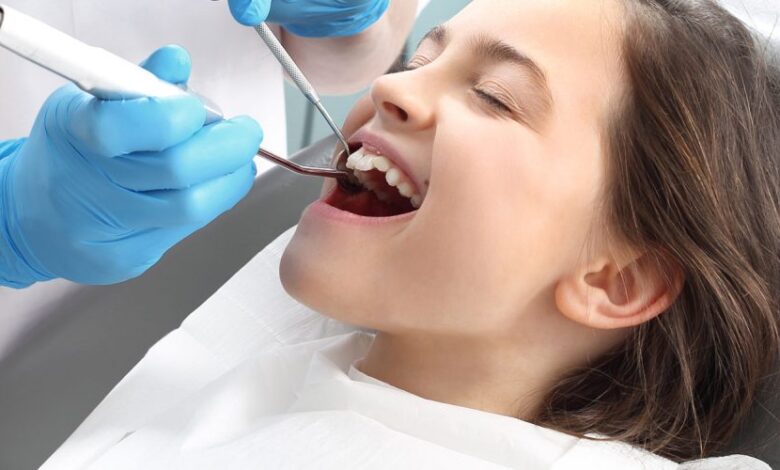How General Dentistry Supports Children’s Long Term Oral Development

Caring for your child’s smile is one of the most loving acts you can perform. General dentistry lays the foundation for healthy teeth and gums from a young age. Regular visits to a Georgetown TX dentist establish a routine that encourages children to prioritize their oral health. This consistency helps prevent cavities, gum issues, and other oral problems. By addressing these concerns early, you contribute to strong, healthy teeth that last a lifetime. You help your child develop a positive attitude towards dental visits. They learn the importance of brushing, flossing, and maintaining good oral hygiene. This approach not only reduces dental anxiety but also fosters confidence in their smile. Regular check-ups catch potential issues before they become serious, saving time, money, and discomfort in the future. By choosing a skilled and caring dentist, you ensure your child receives the best care possible for their growing teeth.
The Importance of Early Dental Care
Early dental care is essential for ensuring your child’s long-term oral health. The American Dental Association recommends that a child’s first dental visit occurs within six months of the first tooth appearing. Visiting the dentist early helps identify potential issues, such as misaligned teeth or weak enamel, before they develop into more serious problems. Early check-ups also set the stage for a lifetime of healthy dental habits. For more information, visit the American Dental Association.
Benefits of Routine Dental Visits
Routine dental visits offer numerous benefits. These include:
- Early detection of cavities
- Prevention of gum problems
- Guidance on brushing and flossing techniques
- Monitoring of teeth development
By making regular appointments, you provide your child with the tools and knowledge needed for a bright, healthy smile. Regular cleanings remove plaque buildup, which minimizes the risk of cavities and gum issues. Your dentist can offer personalized advice to help your child maintain excellent oral hygiene at home.
Educating Children on Oral Health
Dental visits serve as a valuable opportunity to educate children on the importance of oral hygiene. Dentists explain the impact of sugary foods and drinks on teeth and emphasize the need for regular brushing and flossing. Children who understand the reasons behind dental care are more likely to adopt and maintain these habits. This education fosters a sense of responsibility and helps children take charge of their own oral health.
Role of Parents in Dental Care
Parents play a crucial role in supporting their child’s oral health. Encouraging regular brushing and flossing, limiting sugary snacks, and ensuring routine dental visits are essential responsibilities. Parental involvement reinforces the practices taught by the dentist and helps children develop a positive attitude towards oral care. By setting a good example, you encourage your child to take care of their teeth.
Comparing Dental Care Benefits
| Benefits | Impact |
|---|---|
| Early Detection of Issues | Prevents serious problems |
| Professional Cleaning | Removes plaque and tartar |
| Education on Oral Hygiene | Encourages lifelong habits |
Encouraging a Positive Dental Experience
Creating a positive dental experience for your child is vital. Choose a dentist who is skilled in working with children and understands their unique needs. A welcoming environment, friendly staff, and a caring approach can make all the difference. Building a positive relationship with the dentist helps reduce anxiety and creates a foundation for regular, stress-free visits.
Conclusion
General dentistry plays a critical role in supporting your child’s long-term oral health. Through early care, education, and routine visits, you set your child on the path to a healthy smile that lasts a lifetime. By understanding the benefits and actively engaging in your child’s dental care, you provide them with the best possible foundation for oral health. For more resources on children’s oral health, visit the Centers for Disease Control and Prevention.



